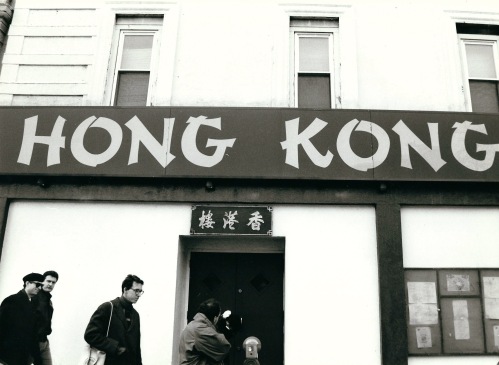Or let me tell you another story I heard about twenty years ago from a black civil rights activist who came up to study at Harvard Law School-it kind of illustrates some of the other pressures that are around. This guy gave a talk in which he described how the kids starting off at Harvard Law School come in with long hair and backpacks and social ideals, they’re all going to go into public service law to change the world and so on–that’s the first year. Around springtime, the recruiters come for the cushy summer jobs in the Wall Street law firms, and these students figure, “What the heck, I can put on a tie and a jacket and shave for one day, just because I need that money and why shouldn’t I have it?” So they put on the tie and the jacket for that one day, and they get the job, and then they go off for the summer and when they come back in the fall, it’s ties, and jackets, and obedience, a shift of ideology. Sometimes it takes two years.
Well, obviously he was over-drawing the point-but those sorts of factors also are very influential. I mean, I’ve felt it all my life: it’s extremely easy to be sucked into the dominant culture, it can be very appealing. There are alot of rewards. And what’s more, the people you meet don’t look like bad people–you don’t want to sit there and insult them. Maybe they’re perfectly nice people. So you try to be friends, maybe you even are friends. Well, you begin to conform, you begin to adapt, you begin to smooth off the harsher edges–and pretty soon it’s just happened, it kind of seeps in. And education at a place like Harvard is largely geared to that, to a remarkable extent in fact.
And there are many other subtle mechanisms which contribute to ideological control as well, of course-including just the fact that the universities support and encourage people to occupy themselves with irrelevant and innocuous work.
–Noam Chomsky, Understanding Power, p. 239
